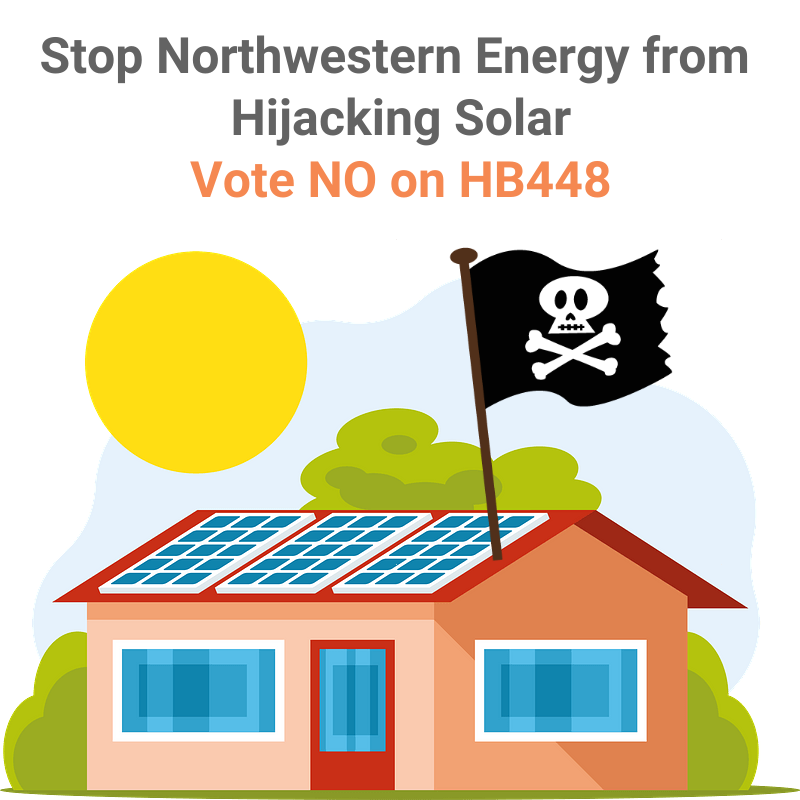On November 13th, the Montana Legislature opened a Special Session called by Gov. Bullock in order to address Montana’s budget crisis. MREA staff was present in Helena, working to protect renewable energy policies during the fast moving session. During the 4-day session, which adjourned on November 16th, MREA tracked two bills that had implications for renewable energy development: House Bill 7 and House Bill 6.
During a Special Session, bills can move quickly – often times so quickly that their full implications may not be completely understood. This was a huge concern with House Bill 7 (Rep. Alan Redfield). HB7 would have frozen numerous income tax credits that benefit Montanans across the state, including alternative energy credits. The alternative energy credits are used by thousands of Montanans to help support their investment in local, on-site renewable energy systems. This investment bolsters Montana’s growing renewable energy industry, and is helping move renewable energy development forward. During the hearing on this bill, the sponsor admitted he was unaware of the true impacts this bill would have on the budget crisis. It seemed that the inclusion of the renewable energy incentives was not a budgetary fix, but yet another attack on clean energy policy. HB7 bill passed out of the House Taxation Committee, but was never introduced on the House floor and died when the special session ended. A similar bill attacking these tax credits, specifically, was introduced during the regular session this past winter and was vetoed by the Governor.
House Bill 6 (Rep. Nancy Ballance) is a “transfer bill”, designed to move funds from existing State accounts and budgets into the general fund to help makeup for the shortfall. Included in the numerous transfers is $1.2 million from the Alternative Energy Revolving Loan Fund. The Alternative Energy Revolving Loan Program is administered by the Montana Energy Bureau at the Montana Dept. of Environmental Quality. Funds are used to provide low-interest loans for alternative energy projects around the state. HB6 was, along with a couple others bills, passed to the Governor’s desk and was allowed to become law without his signature. Reportedly, the three bills not signed (including HB6) have been described as being interconnected, thus making impossible for the governor to reject any part of the plan without further cuts.
According to a statement from the Energy Bureau,
“DEQ will continue to accept loan applications on a rolling basis. The legislatively-mandated reduction may necessitate the implementation of a ranking system to prioritize loans for funding if we expect qualified applications to exceed available funds. At this time, program staff are analyzing the impact of the fund transfer to the loan program, developing ranking criteria, and a potential schedule for application review.
The transfer will limit DEQ’s ability to fully utilize the program to serve homeowners and small businesses across Montana and will likely result in a lower number of funded loans than in previous fiscal years. Because a loanable balance for programs like this is built over time, this large one-time transfer is not just impactful for the transfer year, but likely to be felt for an extended period.”
The Energy Bureau will be posting additional information to the program website when it is available. MREA has been in contact with Energy Bureau staff and will continue to provide updates as we learn more.


